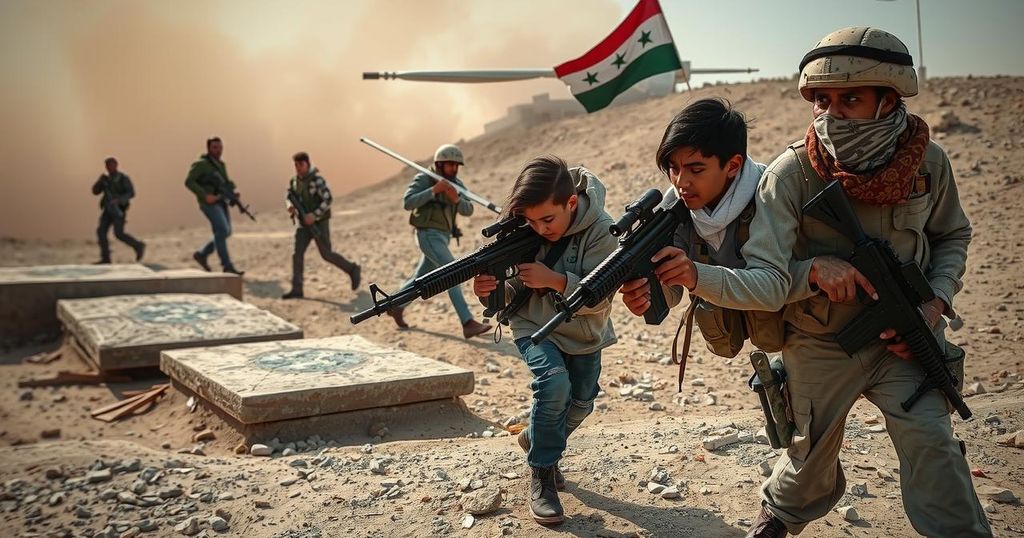Syrian Conflict: Renewed Rebel Offensives Amidst Ongoing Challenges for Assad
The resurgence of conflict in Syria, following the 2022 Hamas attacks, has led to significant rebel offensives, particularly by Hayat Tahrir al-Sham (HTS), reclaiming territories like Aleppo. Despite impressive gains by rebels, the Assad regime retains crucial support and military backing from allies, raising questions about the durability of these advances and the potential for lasting peace. The international community calls for a political resolution amidst growing humanitarian concerns.
The renewed conflict in Syria has reignited amidst the chaos following the Hamas attacks on Israel in October 2022. This escalation has drawn attention to the ongoing war in Syria, which had previously faded from global headlines but has persisted with significant implications. Despite Bashar al-Assad maintaining control over major cities and infrastructure, recent advances by a coalition of rebel groups, particularly Hayat Tahrir al-Sham (HTS), mark a pivotal moment in the conflict. HTS, having historically aligned with jihadist ideologies, has sought to distance itself from such labels in order to garner broader support. The organization’s latest offensive has seen it regain significant ground, including the strategically important city of Aleppo, which was previously a stronghold for Syrian government forces.
The regime has faced additional pressures, with Iran and Hezbollah hindered by Israeli military actions and Russia’s resources diverted to the conflict in Ukraine. Despite the apparent strength of the rebel coalition, it is crucial to acknowledge that the Assad regime still possesses a core of genuine support among some Syrians, who perceive it as the lesser evil compared to extremist elements. Amidst this complex landscape, the international community remains concerned about the humanitarian consequences and the lack of a political resolution to the conflict, highlighted by the UN envoy’s observations on the dire need for a genuine peace process that respects the decisions of the Syrian people.
Conclusively, while the recent offensive demonstrates the potential for change in Syria’s war dynamics, one must remain cautious in forecasting the outcome, keeping in mind the resilience of the Assad regime, which has historically shown an unwillingness to yield despite mounting adversities. The situation continues to evolve, underscoring the unpredictable nature of the Syrian conflict.
The Syrian war, which began in 2011, has been marked by significant upheavals and the struggle for power, leading to one of the most devastating humanitarian crises in recent history. President Bashar al-Assad’s regime has relied on foreign allies, including Russia and Iran, to maintain control against a diverse array of rebel forces. Recent geopolitical shifts, particularly after the 2022 Hamas attacks, have reignited violence and highlighted the fragility of the status quo in Syria. As rebel factions gain ground, there is a growing concern over the implications for regional stability and civilian safety, alongside pressing calls for a political resolution to a conflict that has already claimed countless lives.
The ongoing struggle in Syria illustrates the depth of the conflict’s complexities and the unpredictable nature of alliances and power dynamics in the region. While the emergence of rebel victories may signal a shift, the enduring support for the Assad regime and the involvement of regional powers complicate the situation further. The international community must grapple with the reality that military solutions alone will not resolve the enduring crisis, as meaningful political dialogue remains crucial in determining Syria’s future. Notably, the necessity for a unified approach toward establishing peace, as mandated by UN resolutions, becomes increasingly urgent.
Original Source: www.bbc.co.uk




Post Comment